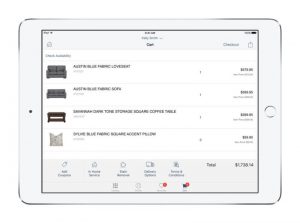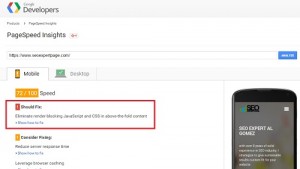
Research shows that 2% is the average click through rate for paid search. While you might be getting an average CTR of 5% of more, are you really being efficient with managing your PPC accounts and are ultimately working on getting results for your clients?
Today, I’d like to share several tips on managing your PPC campaigns.
The tips that I’m about to share with you would be applicable whether you’re managing a client’s PPC campaign, or managing your own.
It’s quite easy for us (those who manage PPC accounts) to become obsessed with numbers. But it’s important to understand the “real story” behind those numbers.
Instead of just looking at click through rates, impressions, clicks, etc. separately, try to develop theories and analysis on what affected those numbers. Which is why my first tip is to:
1. Identify The Ultimate Goal Of The Campaign.
Is this a lead generation campaign?
A branding campaign?
Promotion campaign?
Retail sales?
Getting more sales and more leads for your clients might be their ultimate goal, but it may or may not be aligned with the goal of your PPC campaign.
Let’s say you have a client that wants to sell more of their products and services to online leads. You can have a different PPC campaign goal for branding purposes, testing the market, generating the leads and driving the sale.
And here’s a huge bonus tip, you’ll probably want to utilize Google Analytics‘ multi-attribution features to help you understand the behavior of your customers from brand exposure to the final conversion/sale.
2. Identify What The Client Is Willing To Spend To Get A Lead Or Sale.
After identifying the goal of your PPC campaigns, it’s important next to identify how much can be comfortably spent to acquire a lead or sale.
If you’re selling products online (e-commerce), getting this number is easy. Simply find out what’s the profit-margin for the products that they are selling.
A $100 product will have a higher profit-margin than a $10 product, so you could probably spend more advertising dollars on the $100 product. As long as you are not over your target CPA (cost per acquisition), then your campaigns are making a profit or at least breaking even.
For a lead generation business, you’ll need to factor 2 things here.
With a PPC lead generation campaign, you’ll get a lead conversion, but that may or may not turn into a “final sale” for your client.
You can only influence most of the lead generation part, but with closing the final sale, it’s really up to your client to close those deals.
It’s important to know what their “closing conversion rates” are because it will help you determine how what’s the approximate number of leads you need to attract in order to get a sale.
A 10% closing conversion rate means that for every 10 good qualified lead you sent to them, they can close it into one sale.
Then with your lead generation conversion rate, you’ll know how much traffic you’ll need to generate in order to get 1 lead.
Now that you’re armed with an idea on how much traffic you need to acquire one good lead, you can then make a good estimate of how much budget you’ll need to run your campaigns.
3. Budgets And Profitable PPC Campaigns
If you’ve run into “limited budget” issues, I sincerely believe that it’s not because you’ve exhausted your budget.
It’s because you may or may not have a profitable PPC campaign.
Except for a branding campaign, most PPC campaigns can be measured if it’s profitable or not.
If an e-commerce business is spending $1,000 on their PPC campaigns but is making a net revenue of $2,000 from PPC then they have a profitable campaign.
You’re leaving money on the table because there’s tons of opportunity here that being wasted because of “limited budgets”. When you think of it, for every $1 that they spend they are getting back $2, so it might make more sense to put more funds in these profitable campaigns.
If you’re managing PPC accounts, you should bring this to your client’s attention because you might be able to scale their campaigns and bring more conversions.
But of course, not all campaigns will be profitable.
Most PPC campaigns will lose money especially when they are just starting out gathering data.
It’s important to set aside budgets for these types of campaigns, but it’s also important to put most of the budgets on campaigns that are getting results.
4. Always Be Testing
The PPC landscape is always moving. If you let your campaigns sit and run without any monitoring or optimizations for days, weeks and months, then you’re either over-paying or underserving.
While you might be tempted on doing a major overhaul and run multi-variant split tests, I don’t recommend that unless it’s something that you can really track and monitor judiciously.
Keep it simple and don’t test too many assumptions at the same time.
5. Always Be Learning.
Industry updates, best-practices, case-studies and constant learning are one of the key factors in successful management of PPC campaigns. The industry is constantly evolving and it’s important that you can leverage new tools and improvements to help optimize your PPC campaigns.
Now Read
Ryan is a PPC Specialist at Search Engine People, Inc and has been working in traffic generation, conversion optimization, and internet marketing for almost 8 years. Ryan focuses on driving digital performance on all the PPC accounts he handles. He’s also into photography and juicing!
5 Tips for Managing Your PPC Accounts
The post 5 Tips for Managing Your PPC Accounts appeared first on Search Engine People Blog.
(179)









